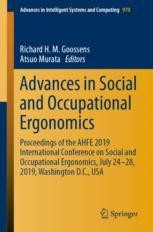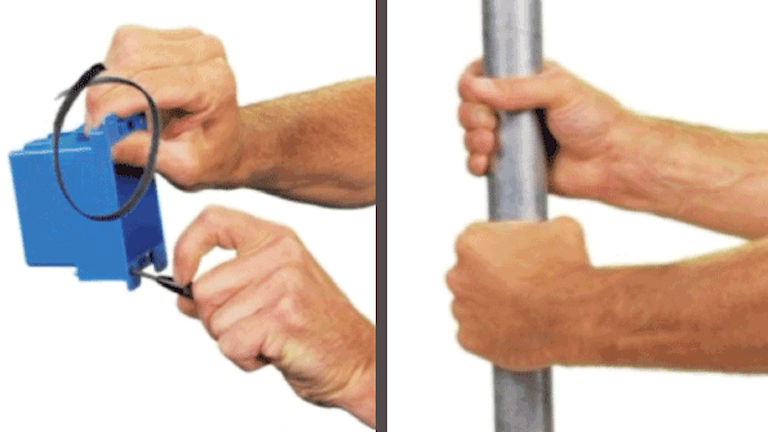Wendy Allen, marketing and communications at MJF Office
How important is an ergonomic work environment… and what does ergonomic mean anyway?
The majority of the modern day workforce sits at a desk. But have you stopped to think about the implications of how a chair can affect your posture and back health?
In the UK around 70% of the workforce do not meet standard requirements for exercise. As we now know, how you sit can add a great strain to your back.
Ergonomics is the new Big Thing
Research has shown, sitting for a long time can have long-term health effects on your body. Musculoskeletal injuries, in particular, are common from repeated sitting. The science of designing the workplace - ergonomics, keeps in mind the capabilities and limitations of the worker. Ergonomics has been implemented in many work-spaces to reduce back strain risks.
An effective ergonomics program improves employees' engagement while promoting responsibility and accountability for their own health and well-being with tools that encourage regular.
Three ergonomic risk factors:
repetitive task repetition
forceful exertions
repetitive sustained awkward postures
As these long-term office environment health effects can cause a problem, it’s become clear that we all need to take steps to reduce these risks.
Some basic ideas that employers can implement are job rotation and counteractive stretch breaks, which ensure more movement during the day and less time in the same position.
Without an ergonomic plan, workers are left fatigued, frustrated and hurting. Simple ergonomic improvements can increase not only health but productivity, quality and efficiency of workers.
Make your ergonomic plan
Start to take some carefully recommended ergonomic steps to ensure better worker safety and health:

armrests
adjustable seat height
ability to recline a chair
footrest
comfortable chair material
We’ve all heard of healthy eating – now it’s healthy seating too!
Benefits to using ergonomic chairs include:
- To support an after-school, sequential music program that includes in-school enrichment activities, a curriculum aligned with in-school initiatives and intensity of instruction. High Desert Museum, Bend - $11,500 To support a year-long arts education program culminating in an exhibition at the Museum.
- Some basic ideas that employers can implement are job rotation and counteractive stretch breaks, which ensure more movement during the day and less time in the same position. Without an ergonomic plan, workers are left fatigued, frustrated and hurting.
support your posture
more comfort
reduced risk of neck problems
reduced risk of back pain
make working easier
In terms of employees, it’s important to sit upright, take regular breaks and maintain a neutral sitting position.

Don’t stand for it. Don’t sit for it either!
Ergonomicseffective Curriculum Ideas Preschool
With an ever-increasing number of the workforce sitting all day long, it’s imperative that companies follow these ergonomic recommendations, in order to have healthier and happier employees.

Find out more at the BIFM Wales Region ‘Creating the workplace event of the future’ event
Enjoyed this article? Why not meet the MJF team at our FMP Event
Wendy Allen is a blogger and marketing consultant for MJF Office, with an interest and enthusiasm for inspirational office furniture, design, planning and fit-out solutions.
Background: JWT, DMB&B, Saatchi Direct, Planet Coms Ltd.
Wendy Allen, marketing and communications at MJF Office ask How important is an ergonomic work environment… and what does ergonomic mean anyway?
Safety Training Offered
AFL-CIO George Meany CenterAttention union activists, staff, and local union health and safety representatives who would like to teach their membership about workplace health and safety issues. The George Meany Center for Labor Studies will offer two six-day Train-the-Trainer health and safety programs next year.

The first is a Train the Trainer Program on Workplace Health and Safety For Bi-Lingual (Spanish-English) Union Trainers February 8 – 13, 2004. Click here for flyer and here for application.
The second class, for English speakers runs from May 2 – 7, 2004. Click here for flyer and here for application.
Topics of both classes include
- Worker and Union Roles in Workplace Safety and Health
- Identifying Hazards in the Workplace
- Legal Health and Safety Rights of Workers and Unions
- Recordkeeping (OSHA 300 Log) Requirements
- Introduction to Ergonomics
- Effective Health and Safety Committees
For more information, Sharon Simon at the George Meany Center at 301- 431-5414, or at ssimon@georgemeany.org.
Ergonomicseffective Curriculum Ideas Activities
Sign up soon. Space is limited.
Ergonomicseffective Curriculum Ideas High School
